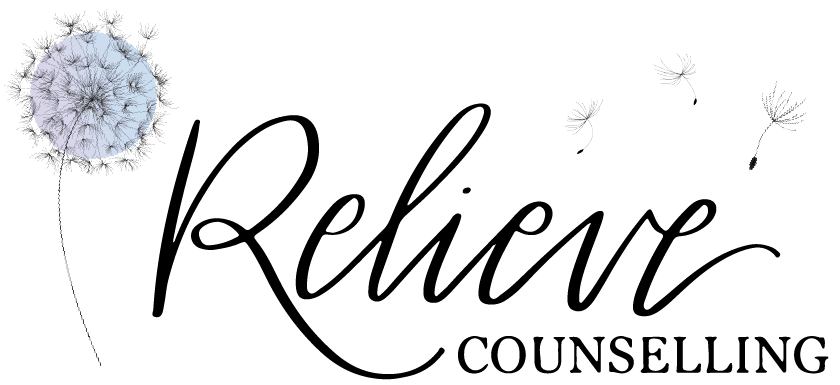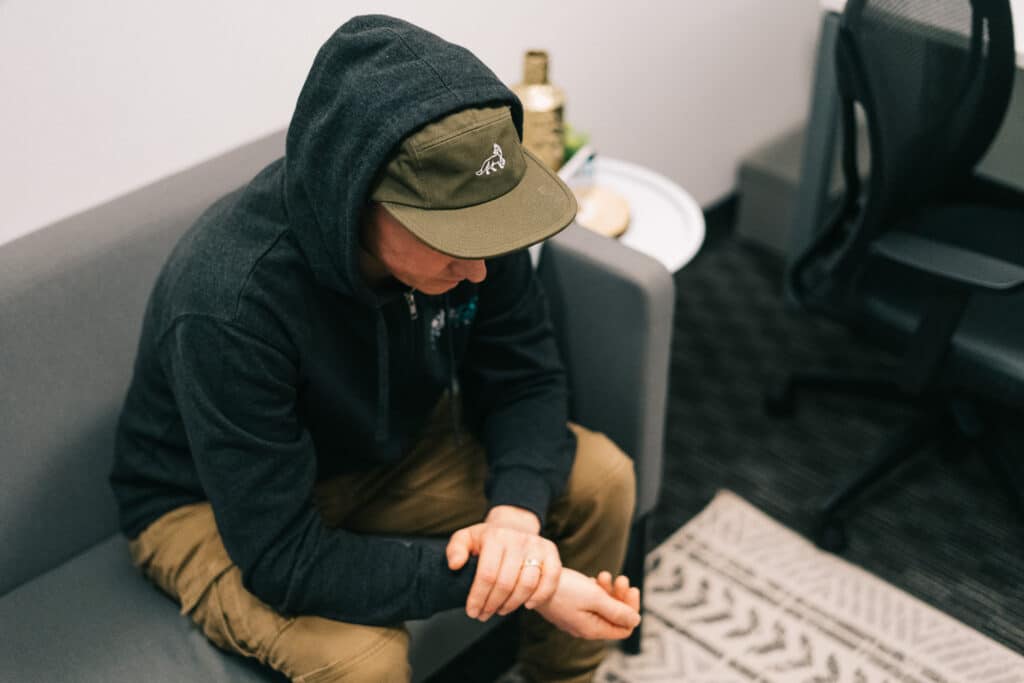Do you wake up in the morning feeling groggy, confused, and feel like you didn’t get enough sleep?
Are you waking up constantly throughout the night or have a hard time falling asleep? Maybe it feels impossible to turn off your brain because you have too many things on your to-do list. You find yourself ruminating about the conversation you had earlier, or questioning yourself whether or not you remembered to set your alarm. You replay your day or imagine what tomorrow will bring. It’s okay – you are not alone.
If you are like me and have found yourself exhausted at bedtime but can’t seem to fall asleep, or are waking up constantly throughout the night – then I want to tell you about sleep-hygiene. What is that you ask? It is creating a routine when it comes to bedtime and setting yourself up for success throughout the day. Getting proper sleep actually improves your mental health and well-being and can help reduce your anxiety.
15 ways to improve your sleep
1. Relax – What do you do to relax? It may be reading a book, having a candlelit bubble bath, talking with a friend, watching a movie, or doing a puzzle. It’s important to wind down after a day of work, in order to prepare our bodies to sleep. Maybe it’s doing progressive-muscular relaxation, meditation, or listening to peaceful music before bedtime.
2. Physical activity – Exercise actually helps you have better quality sleep. The best time to exercise is mid-afternoon. You don’t want to go for a run right before you sleep because that will likely keep you up at night – so be mindful of when you exercise.
3. Drink enough water throughout the day – As we all know, staying hydrated has many health benefits. Something I have always struggled with is drinking enough water before bed. I find that it’s 7pm and I haven’t drunk anything all day, and so I chug a litre of water before bed. This, in turn, wakes me up numerous times a night because I need to use the toilet.
4. Create a comfortable sleeping environment – Make sure that you have a comfortable bed and pillow and that the room is the right temperature. We sleep better when it is a bit cooler in our room, as our temperatures naturally drop as bedtime approaches. Experts say that we have a better sleep if we are sleeping in a cooler environment. Furthermore, make sure that there is no light streaming in through your windows, and wear earplugs if there is a noise that will keep you up throughout the night (a clock ticking, highway traffic, partner snoring).
5. Create a bed-time routine – It’s easy to make your kids follow a bed-time routine, but as adults, we often forget. You probably already have a bed-time routine, so we just need to become aware of it. Maybe it’s taking off your makeup, washing your face or having a shower, brushing your teeth, putting in that retainer you were supposed to be wearing for the past 10 years and forgot. Reading a chapter or two before you sleep. As you create this routine, your body will remember these things and release melatonin as you prepare to sleep.
6. Sleeping only – I get it. Your bed is comfortable! Maybe you’ve been working from home since COVID-19, and you are wanting to work in a comfortable place. However, leave your bed for sleeping and sex only. If you start watching movies, eating, doing homework, or work in or on your bed, then your brain will start connecting your bed to work – which may produce more anxiety. If you leave your bed strictly to sleeping and sex, then your brain will wire itself to know that that’s what it’s for.
7. Leave your bed –Maybe you don’t have to work in the morning and you have the day off. Sometimes having a lazy day in bed is what you need to take care of yourself. Maybe you feel depressed and have lost all motivation. I want to encourage you to still get out of bed. Get dressed, have breakfast, brush your teeth and make your bed!
8. Avoid caffeine & alcohol before bed. This may be for obvious reasons, but caffeine and alcohol contain stimulants, which keep you up, causing you to have a night of poor sleep.
9. Skip or limit your nap time during the day – a power nap can be just the thing to kick start your afternoon after a poor night’s sleep. However, if you are taking 1-3 hour-long naps to try and catch up on your sleep, you will end up ruining your sleep that night, thus creating a nasty cycle. Avoid taking long naps throughout the day and keep pushing through. However, if you just can’t make it, then set a timer and only sleep for 20 minutes!
10. Get natural Light. Our bodies have this thing called a suprachiasmatic nucleus which is located in the hippocampus (in our brain). It is responsible for controlling circadian rhythm which in turn controls our sleep-wake cycle. Light then activates this nucleus, letting our bodies know that it is day time or night time – which is why we experience jet lag because the daylight is interfering with our circadian rhythm and confuses it. Therefore, it is important to have natural light that will stream into your window, activating this – telling your body it is time to wake up!
11. Wake up and go to sleep at the same time every day. Maybe you go to bed at 8pm every night because you wake up at 5am every day, but then the weekend comes and you stay up till 1am and sleep in until 11am and feel utterly exhausted the next day. This is because our bodies live on a 24-hour clock, and our circadian rhythm has adjusted to our regular sleep time. This is why it is important to wake up and go to sleep at the same time every day, even if you have a day off.
12. Sleep when sleepy. If you go to sleep at midnight every night and decide to go to sleep at 9pm one night, you will likely just stay awake frustrated that you can’t fall asleep. That’s because our bodies have an internal clock. If you want to adjust your bedtime, I would suggest doing it in 10-20 minute increments and slowly but surely, you will notice you feel tired at 9pm instead of midnight.
13. Avoid blue-light before bed. Our phones, tablets, and computers emit blue light, which keeps us up at night. As a rule of thumb, switch off all electronics at least an hour before bedtime in order to avoid this stimulation.
14. Have a journal/notepad next to your bed. So often when you are falling asleep you think about what you need to do the next day or want to remind yourself of an appointment. Keep a notepad and a pen next to your bed so you can write “fill up with gas before meeting” and then you don’t have to think about it again. Sometimes, I tell Siri to remind me of something so that I don’t have to go on my phone and write it down.
15. Avoid sleeping pills or melatonin. Maybe you have become addicted to sleeping pills or melatonin and you can no longer fall asleep on your own. Your body has become dependent on it. I would encourage you to slowly wean yourself off and try some of these strategies.
Tips for Success
1. Give yourself grace and be patient. Your body is not used to the changes you are implementing, so it may take a while before you notice an improvement in your sleep.
2. Be consistent. If you are doing these things only for of part the week, then it is not likely that you will see progress. Of course, there will be days where you are up later than expected, but try to keep to your sleep schedule as much as possible.
3. One thing at a time. It may be challenging to try all of these things at once. Pick one thing and start with that, and slowly start implementing the other strategies.
4. Create a sleep journal. Maybe you want to create a sleep log where you check off whether or not you avoided blue-light and caffeine, exercised or skipped a nap. Charting these things can be helpful as maybe you wake up feeling refreshed and you can see what you did the night before that was helpful!
Tried all of these strategies and more and still not having better sleep? I would encourage you to talk with your doctor about a possible sleep-wake disorder or see a counsellor about the past trauma or anxiety that could be keeping you up. I would love to support you as you start this journey to wholeness and freedom – which includes getting the sleep you deserve.

